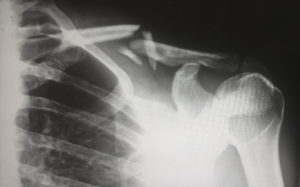If you’ve been involved in a car accident, chances are that you’re stressed out and probably a little shaken. It can be hard to remember what you need to do in such a tense situation, or even after the stressful situation has passed.
The 5 (or 6) Step Process of a Car Accident Lawsuit in Florida
Most lawsuits are settled before they go to trialLuckily, the steps to resolve the consequences of a car accident are straightforward, even if you want to pursue a lawsuit. This article will help you understand what you need to do after a car accident and what the timeline looks like.

The first step is to seek out the advice of an attorney, even if it's a free consultation. But before you start your search, it can be helpful to get a holistic understanding of what to expect out of the process.
Scenarios in which you should pursue a car accident lawsuit

Note: Florida Is a No-Fault State
While most states follow a traditional fault-based insurance scheme for car accidents, Florida is among the states that follow a no-fault insurance scheme. This means that no matter who is at fault, each driver’s own insurance will pay their own damages. So if you’re involved in a car accident in Florida, even if the other driver is at fault, you will submit your claim to your own insurance carrier.
The benefit to this is that the process is much more streamlined than the traditional way, and you don’t have to prove the other driver’s responsibility for your claim to be validated.
However, this also means that you are not guaranteed a settlement, and you can’t collect the same types of compensation you can under a traditional system. So if you do want to pursue further damages for your injuries or destruction of your vehicle, you will need to undergo the settlement process outlined below.
Step-by-Step Timeline of the Florida Car Accident Settlement Process
If you’re unsure about how serious your injuries are or the validity of your insurance claim, you should seek out the advice of an experienced car accident attorney in your area. Their expertise and knowledge can alleviate some of the pressure during the process, help you understand your particular circumstance, and get you the largest settlement possible.
Because collisions between two vehicles are likely to shatter windows/windshields, we often see glass that has been embedded in the skin of an individual. This is a minor injury, but can be extremely uncomfortable.
As reviewed above, Florida is a no-fault state, so you will only need to interface with your own insurance company, not the other driver’s. You can still choose to file a claim against the other driver’s insurance company for serious injuries or property damage. Your car accident lawyer can help you initiate that.

If the settlement the insurance companies offer isn’t satisfactory, you can file a lawsuit.
The statute of limitations in Florida requires you to file your lawsuit within four years following the accident. If the accident resulted in a death, you have up to two years to file a wrongful death lawsuit.
While this may get you a larger settlement, it can extend the timeline of the process by months, and in larger, more complex cases, possibly years.
After a lawsuit is filed, the suit is usually settled out of court through negotiations which may or may not include an arbitrator. If you win a settlement, any medical or automotive bills covered will be paid directly by the responsible party. Any settlement money for intangible items like emotional trauma pain and suffering will be paid out directly to the victim.
How much settlement money will you receive?
The answer varies greatly, depending on the injuries and damages resulting from the accident.
If you are seeking compensation for vehicle damage, the other driver’s insurance company will likely only pay a reasonable cost for repairs or replacement.
If you underwent an injury during the car accident, the settlement for that will be negotiated separately from the property damage. The amount you are compensated depends on the medical bills you’ve received so far, a doctor’s assessment of your injuries, and how much income you’ve missed out on.
Possible 6th step: if your lawsuit goes to trial
If a lawsuit if filed and all parties can’t agree on a settlement amount, the case will go to trial.
Florida is a comparative negligence state, which means that a judge or jury will compare the fault of each party during a trial. The damages will be awarded according to the percentage of fault in the accident. A seasoned car accident attorney can help you determine your likely percentage of fault before you decide to pursue a lawsuit.
